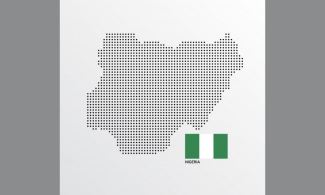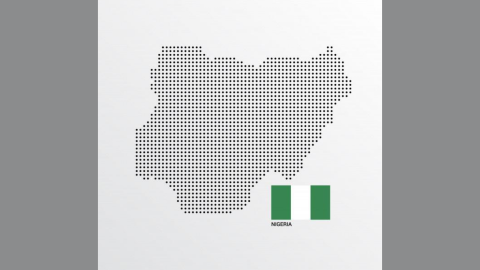
It is quite unfortunate that whenever President Buhari’s spokesmen are offered the ample opportunity of justifying their salaries and fat allowances by polishing the image of their paymaster, they end up rubbishing him the more.
The above title and my decision to write this piece weren’t unconnected to former President Olusegun Obasanjo’s recent outburst, sermonizing that Nigeria is drifting towards a failed state. In his words, “Today, Nigeria is fast drifting to a failed and badly divided state, economically our country is becoming a basket case and poverty capital of the world, and socially, we are firming up as an unwholesome and insecure country”.
In our usual character, many Nigerians have come out to condemn the former President and the Presidency in its response referred to him as the “Divider-in-Chief”. This response on its own is an acknowledgement and an admittance of Obasanjo’s assertion. Mr President’s handlers didn’t refute the statement but rather placed the Ebora of Owu as a better divider than their boss. Interesting!

However, before I fully delve into analysing the authentication or otherwise of the statement, let me quickly glean through the character, record and reputation of the messenger. Chief Olusegun Obasanjo has always been living in contractions—from autocrat to a democrat, from a politician to a ‘theologist’, from a ‘conservatist’ to a modernist, from an idealist to a realist, from a socialist to a capitalist and to so many other contradictions that would make it pretty difficult for an analyst to lucidly analyse the man without running into contradictions.
But like or hate him, he has always been very strong on his views and one of the few Nigerians that usually speak up even at precarious moments.
OBJ might be failing to speak truth to self or work on his image damaged by his own funny character, but he has a fantastic record when it comes to fighting governments failing to deliver good governance to Nigerians.
We will recall how he excoriated Shagari’s government for its nepotism and gross mismanagement of the nation’s resources; in spite of his role in the man’s emergence as the first elected president of the country in 1979. That the government was toppled by General Buhari three months into its second term in 1983 was a confirmation of Obasanjo’s foresightedness. Buhari had hardly spent a year in office when OBJ dismissed his government as having noting tangible to offer the country. Few months later, General Babangida toppled the draconian government of Buhari. IBB received Obasanjo’s bashings throughout his blatant eight years of mesmerising the country and as dangerous as Abacha was, he didn’t spare him of his tong-lashing. When he kept harassing Abacha by asking when he would vacate power and gave democracy a chance, the ruthless ruler provided a free accommodation for the troublesome Obasanjo in prison. He was lucky to be released by General Abdulsalam shortly after Abacha’s sudden death.
He was eventually elected and became Nigeria’s president 20 years after voluntarily relinquishing power to a democratically elected president. He spent a two-term of 8 years in office and boasted to have fixed the economy, fought insecurity, created employment opportunities, stabilized the country by uniting the peoples and fought corruption to a standstill; Nigerians however knew better. They are the judge. In the same way Obasanjo advises and sermonises Buhari now, he did same to late Yar’adua and Jonathan who were his god-sons. In fact, his letter to Buhari on 31st March 2015, Obasanjo advised his former junior in the army to embark on institutional reform. So, it has become his trade-mark.
With this rich experience of his, I would’ve been disappointed if he had referred to Nigeria as a failed state (as wrongly reported in some quarters), because the country is not and Obasabjo is well informed on this; which I’m sure courteously guided his choice of words. He’s therefore right by referring to the country as a failing state. For a country to be categorized a failed state, it must be unable to perform the two fundamental functions of the sovereign nation-state: if it can no longer project authority over its territory and peoples, and it can no longer protect its national boundaries against external aggressions. Some of the countries in the typology of failed states are: Iraq, Yemen, Sudan, Somalia, Libya, etc. But that the 2019 edition of the Fragile States Index ranked Nigeria as the 14th most fragile state in the world and the ninth in Africa testifies to Obasanjo’s position on Nigeria being a failing state. His message did not only resonate with the external image of the country among the committee of nations, it represents pinions of majority of Nigerians who’re becoming pessimistic on the perpetual un-futuristic status of the crippled giant of Africa.
Now let’s excuse the messenger and focus on the content of the former president’s message to see if the message worth being debated. While delivering a speech titled, “Moving Nigeria away from Tipping Over” on Thursday 10th September 2020 at a consultative dialogue attended by various socio-cultural groups including Afenifere, Middle Belt Forum, Northern Elders Forum, Ohaneze Ndi Igbo and Pan Niger Delta Forum in Abuja warned that Nigeria is slowly becoming a failed state (not a failed state yet) and a basket case that urgently needs to be pulled from the brink of collapse. Apart from the fact that the contextual environment where the statement was made called for it, the assertion is full of truth.
Be that as it is, as a Nigerian, is Obasanjo not within the confine of his freedom of expression to comment on the situation of his country? If the presidency and some Nigerians now say the statement shouldn’t have come from Obasanjo because he equally divided Nigeria and a misfit to advise on Nigerian economy as a failure on the subject matter too, who is in a better position to advise a failure than someone who has experienced failure too? Besides, was Nigeria not better under Obasanjo in terms of his swift actions on economic policies and security matters? Is Obasanjo not more of a nationalist in his approach to national issues than many who appear and act like ethnic jingoists even when saddled with national responsibilities? Didn’t Awolowo refer to Nigeria as a mere geographical expression? Didn’t Amodu Bello refer to the amalgamation of 1914 as historical mistake? Didn’t Tafawa Balewa refer to Nigeria as a mere British experiment? As Wole Soyinka, Obasanjo’s chief enemy, not come out to support the latter’s assertion in spite of their differences? Is Soyinka wrong too? Is Nigeria not more divided under Buhari than ever before? Has President Buhari made concerted efforts to unite the nation? Is the country not drifting towards an abyss under Buhari? Haven’t well meaning Nigerians complained bitterly on his lopsided appointments of his security chiefs, indicating nepotism and division? Truth is sacrosanct, no matter when and where it is stated.
It is quite unfortunate that whenever President Buhari’s spokesmen are offered the ample opportunity of justifying their salaries and fat allowances by polishing the image of their paymaster, they end up rubbishing him the more. Instead of calling the thick-skin Obasanjo names, they would’ve done well by ignoring the messenger, focus on the message and rollout the positive areas of Buhari’s administration. After all, both Garba Shehu and Femi Adesina are experienced journalists pulled from the stream of the country’s fourth estate of the realm. However, no matter the amount of letters Obasanjo writes now or may pen in the future, he is equally culpable in the basket case Nigeria has become. They all appear same in the mirror of governance.
Abdullateef Ishowo, an author and public affairs analyst, writes from Ilorin